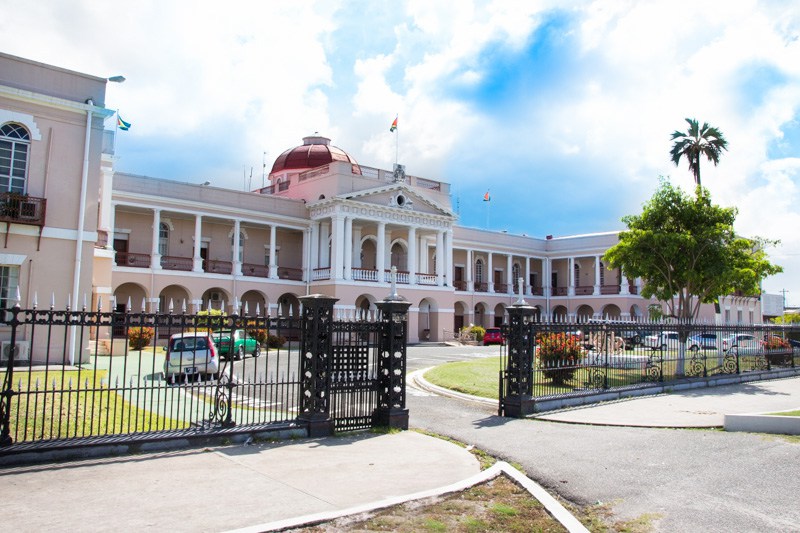The Government of Guyana is proposing to have local companies and citizens participate in no less than 40 critical areas in the oil sector as opposed to the previously recommended 153 categories.
In the Local Content Bill 2021 that was tabled on Thursday by Natural Resources Minister, Vickram Bharrat, the areas that were listed for 100 percent local content participation by 2022 are: transportation, visa and work permit applications, immigration support services, and customs brokerage services.
The categories with a 95 percent local content target are pest control and security services.
Those areas with a requirement for 90 percent participation by Guyanese include rental of office space, accommodation services (apartments and houses), janitorial and laundry services, catering, laydown yard facility, and legal services.
Ship and rig chandlery services, borehole testing services, environmental services and studies, accounting services, and medical services carry a 20 to 25 percent minimum local content requirement.
The category of engineering and machining carries the lowest target which is pegged at 5 percent.
Interestingly, the government has removed certain categories which previously attracted criticism from stakeholders. These include the provision of materials such as steel plates, flat sheers, steel pipes, and low and high voltage cables for the oil sector and the provision of Front End Engineering Design (FEED) services for onshore facilities.
In the explanatory memorandum for the Bill, it was noted that the document represents the principal vehicle through which Guyana seeks to negotiate a tradeoff between investors engaged in the petroleum sector and Guyanese nationals and Guyanese companies involved in the petroleum sector.
OilNOW understands that the Bill endeavours to do so by striving for economic diversification through prioritising Guyanese nationals and Guyanese companies in the procurement of goods and services for the enhancement of the petroleum sector value chain. It was noted that this prioritization will guarantee that there is increased retention of the economic benefits in Guyana while simultaneously allowing for there to be an upsurge in the number, competencies, and capabilities of Guyanese nationals and Guyanese companies participating in the petroleum sector.
To deliver on its legislative target, the Bill puts in place regulatory mechanisms to implement, investigate, supervise, co-ordinate, monitor, and evaluate participation in local content in Guyana. It also includes hefty fines for non-compliance.
Altogether, authorities say the Bill provides for the promotion of competitiveness and the encouragement of the creation of related industries that will sustain the social and economic development of Guyana as well as other related matters.





